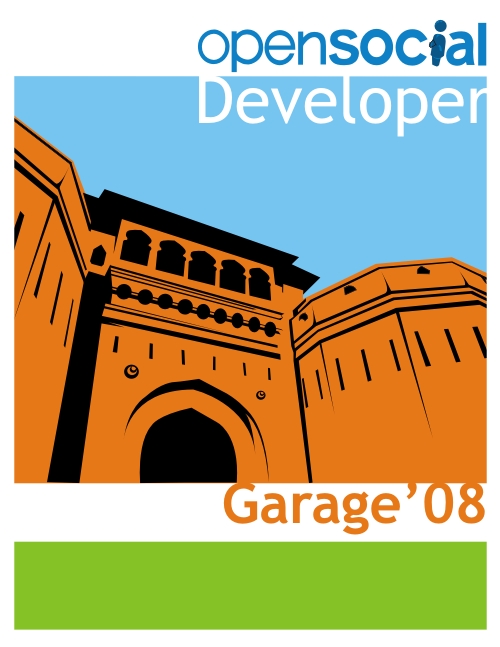
- Image via Wikipedia
Update: Yogesh Pathak and Ravi are the winners. Congratulations, instructions have been sent to you by email.
![]() Every year, the IIT-Bombay Alumni Association of Pune holds their flagship event, Innovations, which showcases 16 of the most interesting innovations from across India. This year, Innovations 2009, will he held on January 10 and 11 from 9am to 6:30pm at the Dewang Mehta auditorium, Persistent Systems.
Every year, the IIT-Bombay Alumni Association of Pune holds their flagship event, Innovations, which showcases 16 of the most interesting innovations from across India. This year, Innovations 2009, will he held on January 10 and 11 from 9am to 6:30pm at the Dewang Mehta auditorium, Persistent Systems.
PuneTech has teamed up with IITBAA to give two of our readers a chance to win free delegate passes, which would otherwise cost you Rs. 1000 each. To enter, all you need to do is leave a comment on this post as to why you would like to attend Innovations, and how you expect to benefit from attending. (If you are a blogger, and would like to send some google juice our way, blog about this, and link to this post. Your trackback/pingback appearing in the comments sections will be considered an entry into this contest.) The two most interesting responses, as determined by the IITBAA executive committee in consultation with PuneTech editors will get one free entry pass each. Contest ends on Monday, 5th January, midnight (Indian time).
What to expect at Innovations 2009
Innovations 2009 will be a two day event
Day 1 will start with keynote speech, followed by 16 fast-paced presentations by the innovators, a visit to the exhibits, and Q&A with all the innovators. In the evening, there will be a networking dinner for innovators with special invitees.
Day 2 will be an i2i (Innovation to IPO) Workshop. i2i is a concentrated learning capsule of 4-5 hours on the vital aspects of starting a new enterprise. The innovators and would be entrepreneurs are exposed to ‘how to’ – create a business plan, explore funding options, create a go to market strategy, deal with legal/regulatory aspects and more. Renowned experts from diverse fields share their experiences & expertise in 45 min sessions (3-4 of such sessions are planned) and help innovators create their own roadmap to success.
Why we think you should attend
Amit Paranjape, primary advisor to PuneTech, has attended the last two Innovations events, is a fan of this event and the reason why we talked the IITBAA into running this contest for our readers. Both of us (i.e. Amit and Navin) are attending Innovations (with our own money). We this this will be a great place to meet a whole lot of very interesting people from the startup ecosystem in India (although, technically, Innovations is not limited just to startups – even innovations in big companies are eligible.)
The innovations website gives these reasons for why you should attend.
Approximately 350 invitees consisting of VC’s, bankers, corporate executives, academicians, scientists, media, and other professionals are expected to attend this event. The organizers believe that there are a number of reasons why an invitee will be compelled to attend such an event. They are:
- Meet multiple innovators to learn about what it took to put the innovation in practice. The attendees will acquire an interdisciplinary perspective on the process of innovation and on how to pitch an innovation.
- Listen to an industry leader’s perspective on the process of innovation.
- Have one-on-one sessions at the exhibits and set up subsequent dialogs. The exhibition booths will highlight the key aspects of each innovation. The organizers expect that individuals closest to the innovations presented are available to interact with the attendees.
So try to come up with different reasons as to why you want to attend – maybe something specific to what you want to get out of this event. If you’ve attended this event in the past and have interesting stories to share, you would have an unfair advantage. So be it – life is unfair.
And let your friends know. PuneTech is a free, non-commercial, for the community and by the community site which depends only upon word-of-mouth advertising.
![Reblog this post [with Zemanta]](http://img.zemanta.com/reblog_b.png?x-id=b17566ce-f093-4cd3-bba2-3c543a07599a)

 Last Saturday, the
Last Saturday, the 
![Reblog this post [with Zemanta]](http://img.zemanta.com/reblog_b.png?x-id=2c7c75af-c7ab-4a4e-bce0-7c109f5c96b4)

![Reblog this post [with Zemanta]](http://img.zemanta.com/reblog_b.png?x-id=3652f1f2-e80e-459f-aca2-f3012b086afe)

![Reblog this post [with Zemanta]](http://img.zemanta.com/reblog_b.png?x-id=d9199c5b-645f-411e-ba75-dd063b8bc314)

![Reblog this post [with Zemanta]](http://img.zemanta.com/reblog_b.png?x-id=e42a3f44-feb3-414e-84b4-bd512947cb85)
![Reblog this post [with Zemanta]](http://img.zemanta.com/reblog_b.png?x-id=af5878f7-aa83-4b20-a1bf-cdff631df669)

![Reblog this post [with Zemanta]](http://img.zemanta.com/reblog_b.png?x-id=64739cbe-1eea-42f9-8261-a492e35ac0b6)